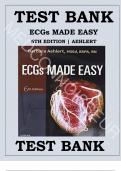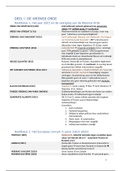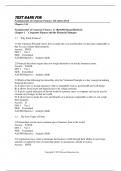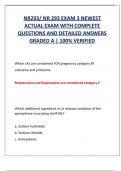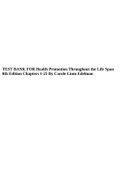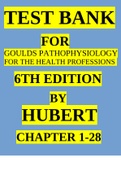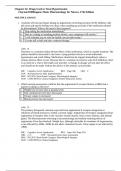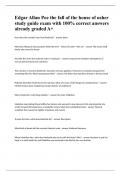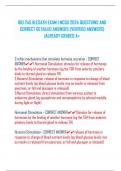Tentamen (uitwerkingen)
Test Bank for ECGs Made Easy 6th Edition by Barbara J Aehlert 9780323401302 Chapters 1-10 Complete Guide.
- Vak
- Instelling
- Boek
Test Bank for ECGs Made Easy 6th Edition by Barbara J Aehlert 9780323401302 Chapters 1-10 Complete Guide. Table of Contents: Chapter 1. Anatomy & Physiology Chapter 2. Basic Electrophysiology Chapter 3. Sinus Mechanisms Chapter 4. Atrial Rhythms Chapter 5. Junctional Rhythms Chapter 6. Ventricular ...
[Meer zien]
